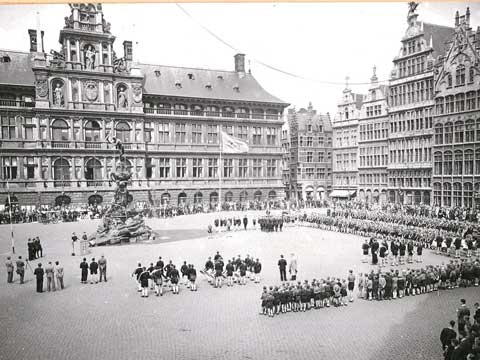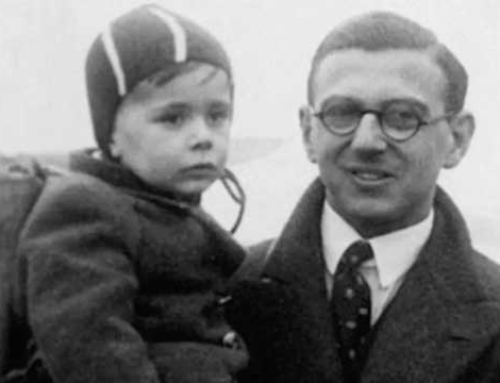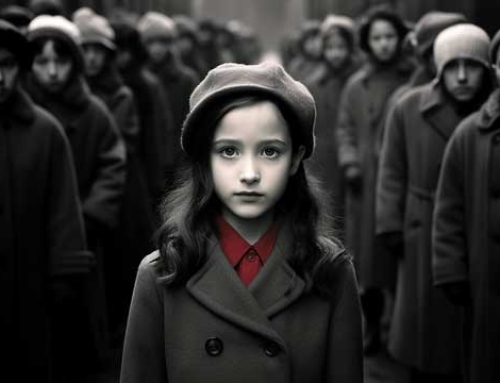Image: Antwerpen during WW II – Grote Markt – © stadsarchief Antwerpen
The blog delves into the pivotal role of the Antwerp authorities during World War II, focusing on the deportation of Jews. Antwerp, with its significant Jewish community, offers a unique perspective on this dark period in history.
Jewish deportation
The deportation of Jews, a central aspect of the Holocaust, was carried out by the Nazis and their collaborators. In Antwerp, the local authorities played a crucial role in this process, directly impacting the fate of many people.
Comparison with other cities
It’s essential to compare Antwerp’s actions with those of other cities that had large Jewish communities, such as Brussels in Belgium, and Amsterdam and Rotterdam in the Netherlands. This comparison helps us understand the varying attitudes of local authorities under Nazi occupation.
Political and moral dilemmas
These cities faced complex political and moral dilemmas. While some authorities attempted resistance or non-compliance, others actively collaborated with the occupiers. These choices had profound consequences for the Jewish communities and the post-war memory and history of these cities.
Historical context in Belgium and the Netherlands
In Belgium, following the swift capitulation of the Belgian army on May 28, 1940, the country was placed under a German military administration led by General Alexander von Falkenhausen. This administration was characterized by strict control over political, economic, and social aspects. A committee of secretaries-general was established by the Belgian government to administer the territory in the absence of elected ministers, but this only allowed the Germans to implement their policies more effectively.
In the Netherlands, the German invasion began on May 10, 1940, and ended with a quick capitulation. Unlike King Leopold III of Belgium, who remained in the country, the Dutch monarchy was repressed, and Queen Wilhelmina joined the government in exile. Under occupation, the Netherlands also experienced antisemitic policies and laws initiated by Germany and its collaborating authorities.
Situation in Antwerp during the occupation
Antwerp, with its large Jewish population, faced a challenging period under Nazi occupation. The city was a major center for the Jewish community, particularly in the diamond sector. However, the situation deteriorated with the German occupation. In 1942, Antwerp witnessed several ‘razzias’, or operations of raids and deportations of Jews orchestrated by the Nazis with the help of local authorities. These events led to the deportation of 4,000 Jews from Antwerp to death camps.
Political responsibility and consequences in Antwerp
The mayor of Antwerp at the time, Leo Delwaide, played a key role in implementing deportation policies. Although he did not personally participate in the raids, he prepared the ground by taking organizational measures and reorganizing the local police force.
Lessons from the past and responsibility in times of upheaval
The events that occurred in Antwerp during the war offer valuable, still relevant lessons today. They highlight the complexity of political and moral decision-making in times of crisis and the responsibility that falls on everyone in times of upheaval and discrimination.






